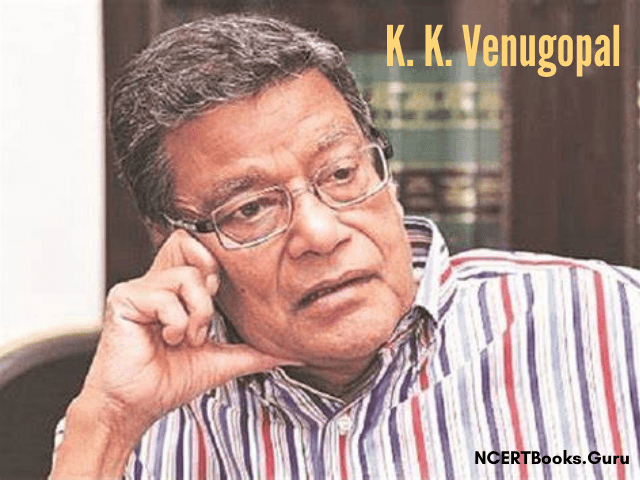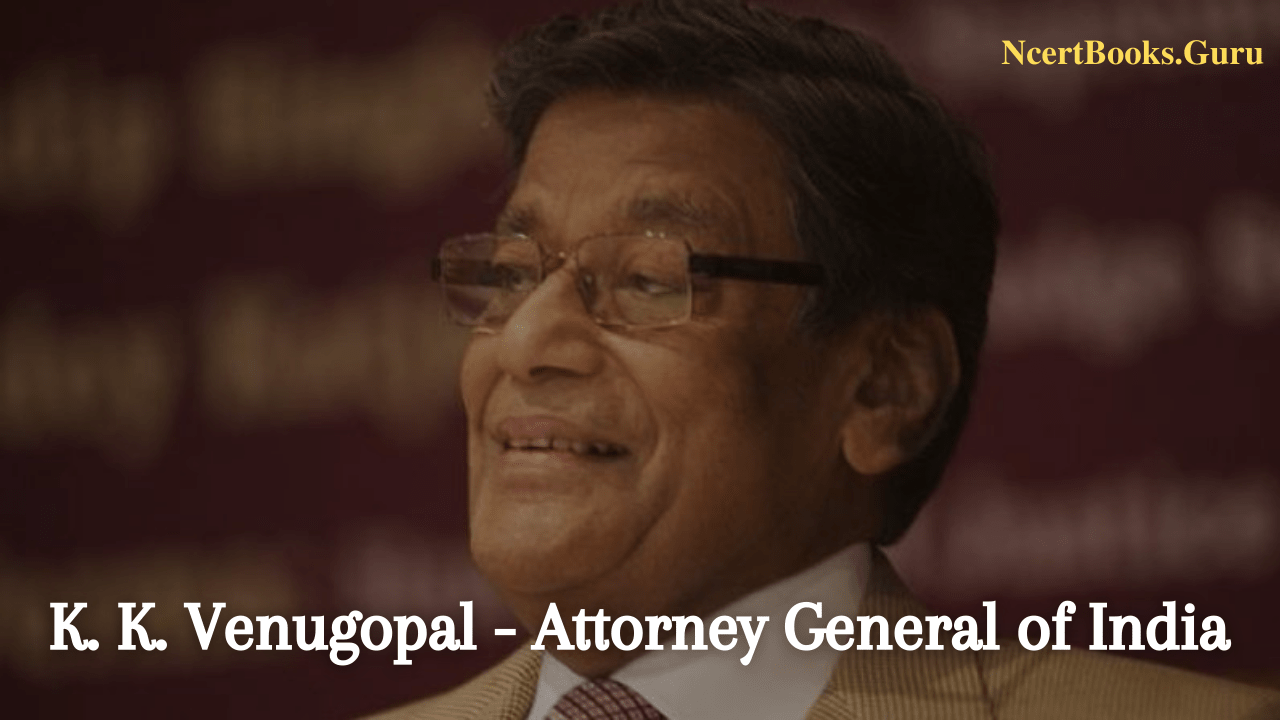Attorney General of India: Have you ever wonder who advises the government of India in legal matters? Do you know who appoints the Attorney General of India? and such questions are answered by our experts in this guide for you all. So, continue your read and find exact answers to your queries related to the AG of India. The current Attorney General of India is K.K. Venugopal and was reappointed by the president of India for a period of one year. Actually, the central government has extended the term of K.K. Venugopal as Attorney General (AG) for one year. Previously, he was elected as the 15th AG of India 2017.
There is no constant tenure to the Attorney General of India because such rule was not provided by the constitution of India. So, AGI holds office during the pleasure of the president. Also, there is no scheme specified in the constitution for the removal of Indian AG. This India GK Topic is very important for the candidates appearing for various competitive exams. Also, go through the Current, Static, World General Knowledge Topics from here and answer the questions that appeared under G. A Section in the govt exams, bank, or other competitive exams.
This Article Covers:
- Overview of Attorney General of India
- Who is the Attorney General of India?
- Appointment & Eligibility Qualifications of AG of India
- List of All Attorney General of India
- Attorney General (AG) of India Duties and Functions
- Important Points About Attorney General of India
- FAQs on AG of India 2021 UPSC
Overview of Indian Attorney General

| Designation | Attorney General of India |
| Current AGI | K. K. Venugopal |
| Appointed By | By the President of India on the advice of Union Cabinet |
| Role | AGI works as the chief legal advisor to the government and s/he is the primary lawyer in the Supreme Court of India. |
| 1st Attorney General of India | Motilal C. Setalvad |
Who is the Attorney General of India?
The Attorney General of India is the highest law officer of India as per the statement given by the Indian constitution under Article 76. He helps the union government in advising all legal matters and acts as a chief legal advisor to the GoI. Also, she/he represents the union government in the Indian supreme court as a primary lawyer. The Attorney General, similar to an Advocate General of a State, is not deemed to be a political nominee.
Also Check: NSA Full Form in India
Appointment & Eligibility Qualifications of AG of India
- AG is elected by the President on the recommendation of the government.
- S/he must be a person who is qualified to be elected as a judge of the Supreme Court
- Must be an Indian Citizen and hold five years of experience as a judge in some high courts or an advocate of the high court for ten years or a prominent attorney, in the opinion of the President.
List of All Attorney General of India from 1950 to Till date
Below is the list of all appointed AG’s of India from the beginning to till date. Students who are preparing for the competitive exams or law exams should remember this list thoroughly and answer all the complex questions asked related to the Attorney General of India.
| S. No | Name | Tenure |
|---|---|---|
| 1 | M.C. Setalvad – First attorney general of India | 28 January 1950 – 1 March 1963 |
| 2 | C.K. Daftari | 2 March 1963 – 30 October 1968 |
| 3 | Niren de | 1 November 1968 – 31 March 1977 |
| 4 | S.V. Gupte | 1 April 1977 – 8 August 1979 |
| 5 | L.N. Sinha | 9 August 1979 – 8 August 1983 |
| 6 | K. Parasaran | 9 August 1983 – 8 December 1989 |
| 7 | Soli Sorabjee | 9 December 1989 – 2 December 1990 |
| 8 | J. Ramaswamy | 3 December 1990 – November 23 1992 |
| 9 | Milon K. Banerji | 21 November 1992 – 8 July 1996 |
| 10 | Ashok Desai | 9 July 1996 – 6 April 1998 |
| 11 | Soli Sorabjee | 7 April 1998 – 4 June 2004 |
| 12 | Milon K. Banerjee | 5 June 2004 – 7 June 2009 |
| 13 | Goolam Essaji Vahanvati | 8 June 2009 – 11 June 2014 |
| 14 | Mukul Rohatgi | 12 June 2014 – 30 June 2017 |
| 15 | K.K. Venugopal | 30 June 2017 – Till date |
Attorney General (AG) Duties and Functions
- To give advice to the Government of India (GoI) upon such legal concerns, which are related to her/him by the President.
- To conduct before-mentioned additional duties of a legal character that are allocated to her/him by the President.
- Attorney General should appear in the supreme court for all cases related to the government on its behalf.
- AG must also appear in the High Court if any case is related to the Government of India.
- Represents the GoI in any recommendation addressed by the President to the Supreme Court underneath Article 143 (Power of the President to consult the Supreme Court) of the Constitution.
- To fulfill the functions awarded on her/him by the Constitution or any other law.
Important Points About Attorney General of India
- The Attorney General (AG) of India is a part of the Union Executive. The highest law officer in our country is AG.
- Article 76 of the Constitution grants for the office of AG of India.
- Term of the Office: Not yet decided by the Constitution.
- Removal: Process and spots for the removal of AG are not declared in the Constitution. Elected AG of India handles office when the pleasure of the President (may be removed by the President at any moment).
- Rights and Limitations:
- AG of India has the power to speak and to become part in the actions of both the Houses of Parliament or their joint sitting and any committee of the Parliament of which s/he may be called a member but without a right to vote.
- The elected Indian Attorney General enjoys all the rights and privileges that are available to a member of Parliament.
- He/She does not come in the category of government assistants. She/he is not restricted from separate/private legal practice.
- However, the Attorney General of India must not recommend or hold a bill against the GoI.
- Solicitor General of India and Additional Solicitor General of India support the AG in the accomplishment of certain official duties.
- Corresponding Office in the States: Advocate General (Article 165).
FAQs on Attorney General of India 2021 UPSC
1. Who is the present Attorney General of India 2021?
Shri K K Venugopal is the current AG of India 2021 who was pleased to re-appoint as AG for a period of one year.
2. Who holds the right to discharge the Attorney General of India?
The President of India holds the power to discharge the AG of India at any time.
3. Who is the first woman attorney general of India?
India’s first woman lawyer & first woman attorney general of India is Cornelia Sorabji.
4. What is Article 76?
Article 76 of the constitution states that he/she is the highest law officer of India. S/he acts as a legal advisor for the Indian government and plays the role of the primary lawyer representing the union government in the supreme court of India.
